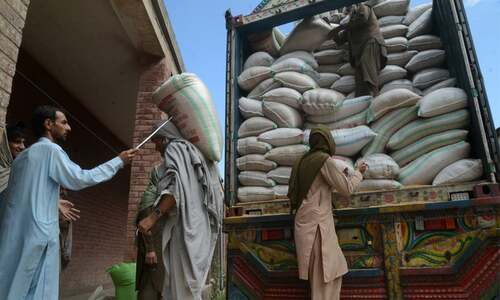PAKISTAN’S political leaders, as a class, profess commitment to the parliamentary system but, in practice, violate every principle on which it rests. Plainly put, they tend to owe allegiance not to institutions but to men. That has been the history and is also the present position.
In a parliamentary government the president symbolises the authority of the state but it is exercised by the prime minister; the majority party in the parliament makes laws but they are uniformly administrated by neutral civil servants; and disputes arising are adjudicated by independent judges.
Legislators have no role in the enforcement of laws, just as civil servants and judges have none in making them. Only the Supreme Court can strike down a law if it is found to negate the constitution. The politics beginning at the polls must end in the assemblies. And the constitutional head of the state, or province, must stand above political squabbles. Civil servants and judges must have no political preferences, much less affiliation, and, ideally, should be averse to politics.
Just as these principles are a matter of common knowledge, so also is their violation. The president leads the ruling party and is the fountainhead of all executive authority. Not the people of Pakistan alone, even the world sees him in that light.
Further, the governor of Sindh fully shares the executive authority of the chief minister. In Punjab, he cuts a pathetic figure. If Pakistan is to be administrated as envisaged in the constitution, Asif Ali Zardari and Yousuf Raza Gilani shall have to swap positions and the provincial governors shall have to act alike.
Down the ladder, most legislators feel persuaded to dabble in administration because there are no elected representatives at levels below the capital cities. Islamabad may be far away from Gwadar, but Quetta is no nearer.
Elected councils from the village upward can fill the wide gap but, ironically, it is the ministers and legislators who would rather deal with the unprotected and increasingly subservient officials rather than with people’s representatives.
The stress and abuse that currently plague public life would abate to a great extent if institutions, and the men who run them, were to conform to the provisions of the constitution.
All elected councillors and career officials working together in districts and villages can create conditions conducive to public peace and welfare. Both will have common interest in resisting interference by senior ministers or bureaucrats.
In the structure of power and responsibility as it stands today, it will be hard to determine who, at any level, is to be held accountable for the death and destruction wrought in Karachi on May 22. If culpability is found at the top, then who should go — the governor or the chief minister?
KUNWAR IDRIS Karachi










































